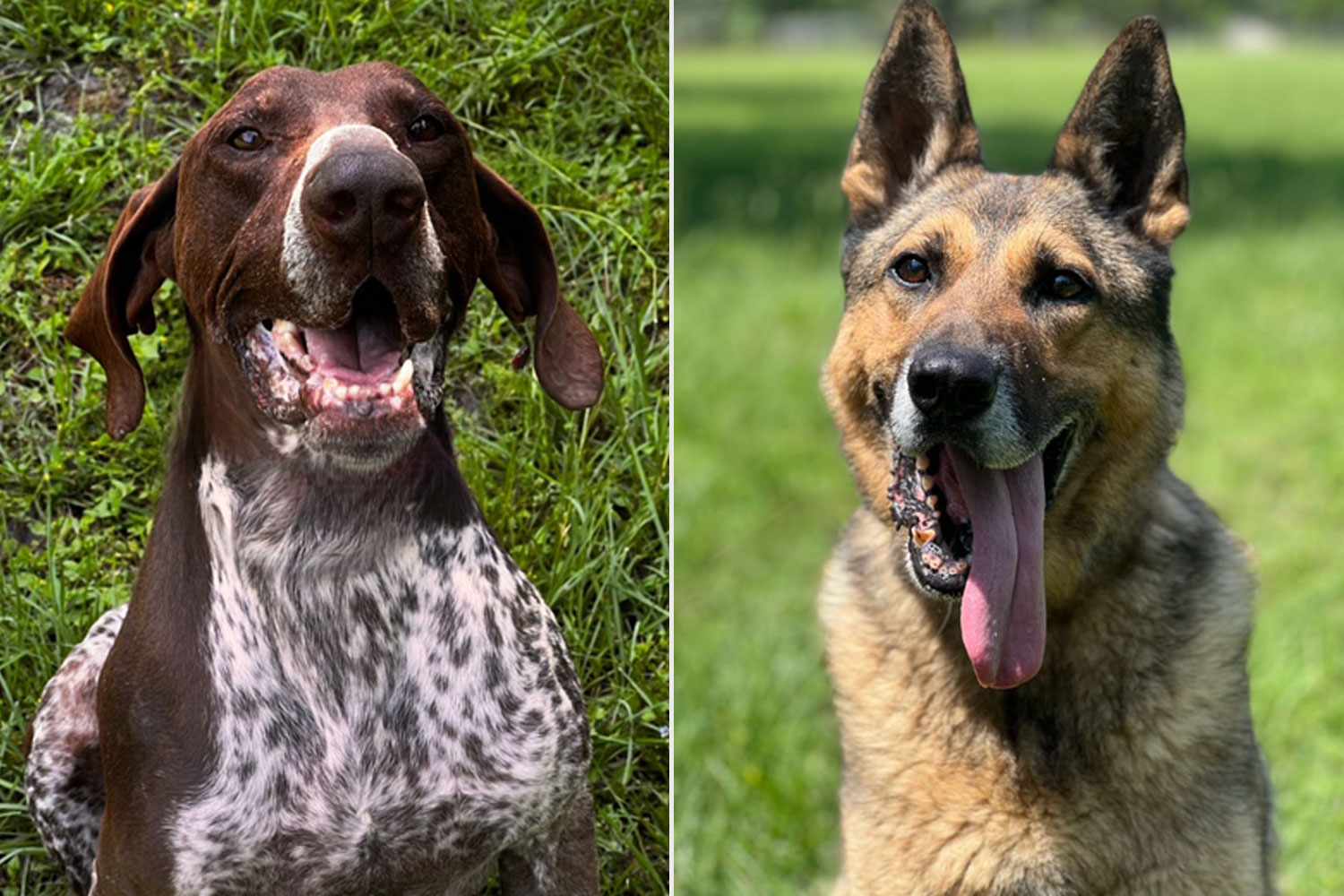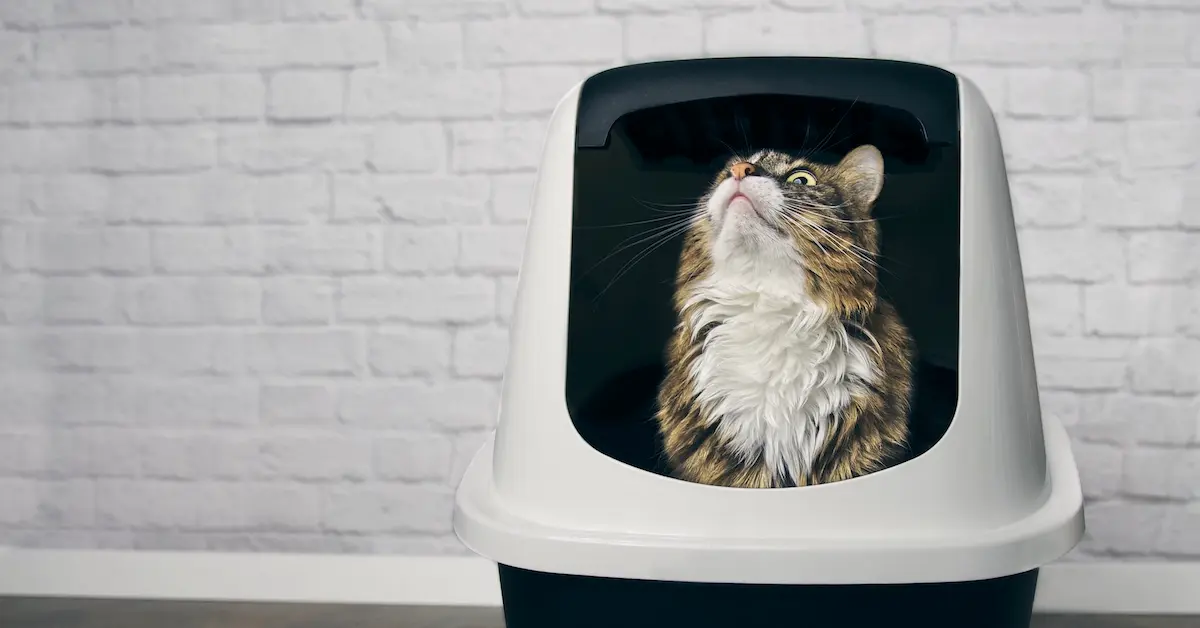Adopting a retired service dog is free, but the adopter is responsible for all future medical care and necessary supplies. When a service dog retires, typically due to age or physical limitations, they can make excellent companion animals.
Retired service dogs usually have extensive socialization and training, making them calm, well-behaved, and able to interact with other pets and people. We will discuss the process involved in adopting a retired service dog, including the requirements, benefits, and potential challenges of taking in a retired service dog.
Additionally, we will explore the experience of owning a retired service dog, the joys and challenges that come with it, and the ways that these dogs can enhance their owners’ lives.

Credit: www.etetrust.org
Why Adopt A Retired Service Dog?
Adopting a retired service dog can be an incredibly rewarding experience. These dogs have served their country or community and have a wealth of experience and training, making them excellent pets. Additionally, adopting a retired service dog means you are providing them with a comfortable and loving home to enjoy their well-deserved retirement.
Retired service dogs have spent a significant amount of time serving their country and helping people. These loyal companions deserve to spend the rest of their lives in a comforting environment surrounded by people who appreciate their hard work and dedication. Adopting a retired service dog can be a great way to give these deserving dogs a second chance at a happy life. In this blog, we will discuss why adopting a retired service dog is a great idea and the benefits of doing so.
Benefits of Adopting a Retired Service Dog
Adopting a retired service dog can be one of the most rewarding experiences of your life. Retired service dogs make excellent pets, and here are some of the benefits of adopting one.
- Well-trained: Retired service dogs are highly trained, well-disciplined, and obedient animals. They have gone through rigorous training to perform their duties, making them an excellent addition to any household.
- Great companionship: These dogs have a lifetime of experience of working with their handlers and being around people. They are socialized, making it easy for them to fit in with any family.
- Low maintenance: Since retired service dogs have been trained accordingly, they need little to no additional training. They are usually housebroken and have excellent manners, making them low maintenance pets.
- Health: Retired service dogs receive regular veterinary checkups and medical care, making them healthy and well taken care of animals.
The Impact of Adoption on Retired Service Dogs
Adopting a retired service dog can be life-changing for both the dog and the owner. These dogs get a chance to live in a loving environment and get the attention they deserve, while the owners can benefit from the pet’s training and companionship.
Adopting a retired service dog provides the animal with a chance to experience new routines and different environments while enjoying life in a secure and caring home. Dogs are social animals and thrive on human interaction, so being in an environment that fulfills these needs would positively impact the dog’s mental and physical health. Adopting a retired service dog can also provide a sense of fulfillment for the owner, knowing that they are giving a deserving animal a new life.
Adopting a retired service dog can be a life-changing experience for both the dog and the owner. These dogs have dedicated their lives to serving their country and people, and they deserve to be taken care of once they retire. Adopting a retired service dog provides an opportunity for the animal to experience a new life while providing the owner with a friend, companion, and a well-trained pet. It is a chance to give back to these loyal companions who have given so much to society.
Credit: www.thesprucepets.com
Who Can Adopt A Retired Service Dog?
Adopting a retired service dog is possible, and there is no cost for the adoption. Anyone who wants to adopt a retired service dog needs to bring a leash, collar and crate, and all transportation and future medical care will be the adopters’ responsibility.
The age of retirement for guide dogs varies depending on several factors, including their health and work performance.
Eligibility Requirements For Adopting A Retired Service Dog
If you are considering adopting a retired service dog, there are some eligibility requirements that you need to meet. The first thing to note is that adopting a retired service dog requires a significant commitment of time, money, love, and patience. You must be willing and able to provide a safe and loving home for your new furry friend.
To be eligible to adopt a retired service dog, you must meet the following criteria:
- Be at least 18 years of age.
- Have a stable and secure home environment.
- Have time to devote to caring for a dog, including training, exercise, and playtime.
- Have the financial resources to provide food, shelter, and medical care.
- Be willing to provide a lifetime commitment to your dog.
Application Process For Adopting A Retired Service Dog
The application process for adopting a retired service dog typically involves several steps. The first step is to find an organization that specializes in retiring service dogs and has a program in place for adoption. You can start by doing an online search to find organizations near you that offer retired service dog adoption programs.
Once you have identified a suitable organization, you will need to complete an adoption application form. The form will typically ask questions about your lifestyle, home environment, and experience with dogs. You may also need to provide references and undergo a background check.
After you submit your application, the organization will review it and determine whether you are a suitable candidate for adopting a retired service dog. If you are approved, you will be contacted to arrange a meet and greet with a retired service dog that matches your lifestyle and needs.
If the meet and greet goes well, you may be given the opportunity to foster the dog for a trial period to ensure that it’s a good fit for both you and the dog. If everything works out, you will be able to finalize the adoption by signing an adoption contract and paying any necessary fees.
Overall, adopting a retired service dog can be a rewarding experience for both you and your new furry friend. By following the eligibility requirements and application process, you can give a retired service dog a second chance at a happy and fulfilling life.
Understanding Retired Service Dogs
When it comes to adopting a retired service dog, there is no cost for the adoption, but you will need to provide a leash, collar and crate. Retired service dogs make great companion pets as they are well socialized and trained to be calm in public.
Their retirement age varies on factors such as their health and work performance.
Retired service dogs have been an integral part of society, providing invaluable support through their service. Whether in the military, police, or as guide dogs, these animals have served people for years before retiring from their duties. But how much do we know about these retired service dogs, and can we adopt them?
Retirement age and reasons for retirement
A service dog’s retirement age varies depending on many factors, such as their work performance and health. The usual retirement range for a guide dog is between 8-11 years old. However, some may retire earlier due to health conditions or if they have slowed down significantly. The signs of retirement may include a decrease in stamina, mobility, and alertness. Therefore, it becomes challenging to continue fulfilling the responsibilities of their duties.
Types of retired service dogs available for adoption
There are different categories of retired service dogs available for adoption, including retired military dogs, police dogs, and guide dogs. Retired military dogs have a unique training process, making them highly sought after.
Retired military dogs and their training specificities
Retired military dogs have gone through intense training, preparing them to perform tasks such as bomb detection, scouting, and attack. The training duration varies depending on the specific role each dog will perform. Retired military dogs have a lot to offer their new owners—well-socialized, calm in public places, and able to interact with different kinds of people and other animals.
When it comes to adopting a retired military dog, the cost is zero, and the only requirement is a leash, collar, and crate during the adoption process. The adopter is responsible for the future medical care and transportation needs of the dog. Besides military dogs, other retired service dogs may become available for adoption based on their career change or health reasons.
Adopting a retired service dog is an excellent way to give back to society while receiving a loyal companion. With their background in service, retired service dogs make great pets, bringing with them experience and discipline. Adopting one of these service dogs is not only beneficial for the new owners but also for the dogs themselves as they transition into a new phase of their lives.
The Adoption Process
Adopting a retired service dog is a great opportunity for anyone looking for a loyal and well-trained companion. The adoption process is free of cost, but adopters are responsible for the dog’s future medical care treatment and transportation. These dogs are usually well socialized and can make great pets.
Finding A Retired Service Dog For Adoption Near Me
Adopting a retired service dog is a noble way to give back to these animals that have given us so much in their time of service. But, the question is – where can you find a retired service dog for adoption near you?
One of the best ways to find a retired service dog is to reach out to organizations that specialize in training and caring for these dogs. You can search for these organizations online, and you should find several options in your area. Additionally, you can reach out to local animal shelters to see if they have any retired service dogs available for adoption.
Assessing Compatibility And Preparing For Adoption
Once you find a retired service dog that you are interested in adopting, the next step is to assess your compatibility with the dog. Keep in mind that these dogs have been through a significant amount of training, and they have unique needs and requirements. Therefore, it is crucial to evaluate whether your home environment and lifestyle are suitable for the dog’s needs.
Preparing for adoption is another essential aspect of the process. You should ensure that you have all the necessary supplies and equipment, such as a leash, collar, and crate, to bring the dog home safely. Additionally, you should have a plan for how you will integrate the dog into your home and routine.
Finalizing The Adoption And Picking Up Your Dog
Once you have assessed compatibility and prepared adequately, the final step is to finalize the adoption and pick up your dog. The adoption process typically involves completing paperwork and paying any necessary fees. When picking up your dog, it is essential to ensure that you have everything you need to transport the dog home safely. You should also schedule an initial visit with a veterinarian to ensure that the dog is healthy and up-to-date on vaccinations.
Adopting a retired service dog is an excellent way to give back to these loyal animals that have served their country and community. By following the proper adoption process and being prepared to take on the responsibilities of caring for a retired service dog, you can provide a loving and peaceful home for a deserving animal friend.
Costs And Responsibilities
Adopting a retired service dog does not come with a cost, but adopters need to provide a leash, collar, and crate. In addition, they will be responsible for the transportation and medical care of the dog. Typically, retired service dogs make great pets as they have been well-trained and socialized.
Costs and Responsibilities of Adopting a Retired Service Dog
If you’re considering adopting a retired service dog, it’s important to understand the costs and responsibilities involved. Although there is no cost associated with adopting a retired service dog, there are still financial and medical responsibilities that must be considered.
Is There A Cost For Adoption?
The good news is that there is no cost for the adoption of a retired service dog. However, you will be responsible for bringing your own leash, collar, and crate when picking up your dog. Additionally, all transportation arrangements and future medical care expenses will be the adopter’s responsibility.
What Are The Financial Responsibilities Of Adopting A Retired Service Dog?
While there is no initial cost for adoption, it’s important to factor in the financial responsibilities of owning a dog. This includes expenses such as food, toys, grooming, and routine medical care like vaccinations and check-ups. Additionally, unexpected medical expenses can arise, so it’s important to have money set aside for emergencies.
What Are The Medical Responsibilities Of Adopting A Retired Service Dog?
Retired service dogs may require special medical attention due to their age or previous service-related injuries. As the adopter, it’s important to stay on top of your dog’s health and take them to the vet for routine check-ups as well as any necessary medical treatments. It’s important to remember that retired service dogs have given a lot in their service and deserve the best care possible in their golden years.
Adopting a retired service dog can be a rewarding experience, but it’s important to understand the costs and responsibilities involved. Having a clear understanding of what it takes to care for a retired service dog is crucial to providing them with the best possible life in their golden years.
Life With A Retired Service Dog
Adopting a retired service dog can provide a unique and rewarding experience for both the dog and its new owner. After years of dedicated service, these dogs have a lot to offer as loving pets. Best of all, there is no cost for adoption, though all future medical care and transportation are the adopter’s responsibilities.
Training And Transitioning Your New Companion
Adopting a retired service dog is a profound and rewarding experience that can have a positive impact on your life, and the life of your new furry friend. The first thing to consider is your dog’s training. After years of service, your dog may need to re-learn basic obedience commands such as “sit,” “stay,” and “come.” You’ll also need to teach them how to relax, play and behave as a companion pet.
It’s essential to take a gentle approach, creating a safe, positive and trusting relationship with your new dog. Remember, it takes time to get used to a new routine, so be patient as you navigate the transition.
Potential Challenges And How To Overcome Them
Adopting a retired service dog may come with some challenges. One of the significant adjustments may be getting them used to a different living environment. The best way to overcome this is with patience, consistency, and positive reinforcement. If your dog has anxiety issues, give them a quiet space to retreat to and make sure they get plenty of exercise. It’s essential to take things one step at a time, and never push your dog beyond their limits.
The Impact Of Adoption On Your Life
Adopting a retired service dog can have a significant impact on your life. Not only do you have a loyal and caring companion, but you’ve also given a loving home to a dog that has given so much to their country. Your new furry friend will provide you with companionship, love and security, and will assist you in various ways that come with retiring service dogs. The love and care from your adopted retired service dog is sure to bring a lifetime of joy and benefit to you and your family.
Other Options For Adopting Service Dogs
Retired service dogs can make wonderful companion pets and can be adopted for free. Adopters will need to provide their own leash, collar and crate, and will be responsible for any future medical treatments and transportation. Retired service dogs are usually well socialized and have been trained to be calm in public around all kinds of people and pets.
Adopting Failed Service Dogs
Failed service dogs, also called career change dogs, are dogs that did not meet the requirements or standards for their specific type of service work. These dogs can still make excellent pets because they have been bred for intelligence and obedience training. You can contact service dog organizations such as Leader Dogs for the Blind, Guide Dogs for the Blind, or Canine Companions for Independence to inquire about adopting failed service dogs.
Adopting Dogs From Specific Organizations
Different organizations train and provide service dogs for various purposes such as guide dogs for the blind, medical alert or mobility assistance dogs, hearing dogs, and therapy dogs. You can contact organizations directly to ask about adoption requirements and availability. Some organizations prioritize matching retired service dogs with veterans or first responders.
Adopting Dogs That Have Retired From Different Types Of Service
Service dogs can retire from various types of work such as law enforcement, search and rescue, and military. These dogs can make great pets as they are often well-trained and disciplined. You can contact organizations such as Paws of War or Mission K9 Rescue to inquire about adopting retired military dogs.
Adopting Dogs For Career Change Purposes
If you are interested in training your own service dog, you can adopt a young dog and start training it. This is known as owner-training, and this option is popular for those with specific service dog needs that may not be met by conventional training programs. You can adopt a puppy or dog from an animal shelter or a specific breed rescue organization, ensuring the dog has the temperament and physical qualities necessary for service work.
Overall, adopting service dogs is a rewarding experience that requires careful research and consideration of the dog’s specific needs. Ensure that you have the time, resources, and other necessary accommodations to provide the dog with a comfortable and healthy life. Remember, you are not just providing a home to a retired working dog or a failed service dog, but you are also gaining a loyal and loving companion that will bring joy to your life.
Frequently Asked Questions Of Adopt A Retired Service Dog
How Much Do Retired Military Dogs Cost?
Retired military dogs can be adopted at no cost. However, the adopter will need to provide a leash, collar, crate and cover all future medical care. The retirement age of guide dogs varies, and retired military dogs make great companion pets.
What Does It Mean When A Service Dog Retires?
When a service dog retires, it means that the dog is ready to transition into a life of being a pampered pet in a loving home. The retirement age of a service dog varies based on factors such as their health and work performance.
Usually, an older dog may slow down or exhibit physical signs of retirement. The adopter is responsible for all future medical care treatment and transportation.
Do Retired Military Dogs Make Good Pets?
Retired military dogs make great pets. They are well-trained and socialized, making them calm and ideal for interacting with people and other pets. Their retirement age varies based on health and performance, and there is no cost to adopt them.
Future medical care and transportation are the adopter’s responsibility.
How Old Are Retired Military Dogs?
Retired military dogs usually retire after 10-12 years of service. Depending on their health and performance, they are ready to transition into the life of a pampered pet in a loving home.
Conclusion
In adopting a retired service dog, you’re not only giving a deserving dog a new and loving home, but you’re also gaining a companion who has received extensive training and has a wealth of experience. These dogs can make wonderful pets, and are usually well socialized and comfortable in all kinds of situations.
Remember that adopting a retired service dog is a serious commitment, and it’s important to be prepared to take full responsibility for their care. Overall, adopting a retired service dog can be a rewarding experience for both you and your new furry friend.





4 Responses